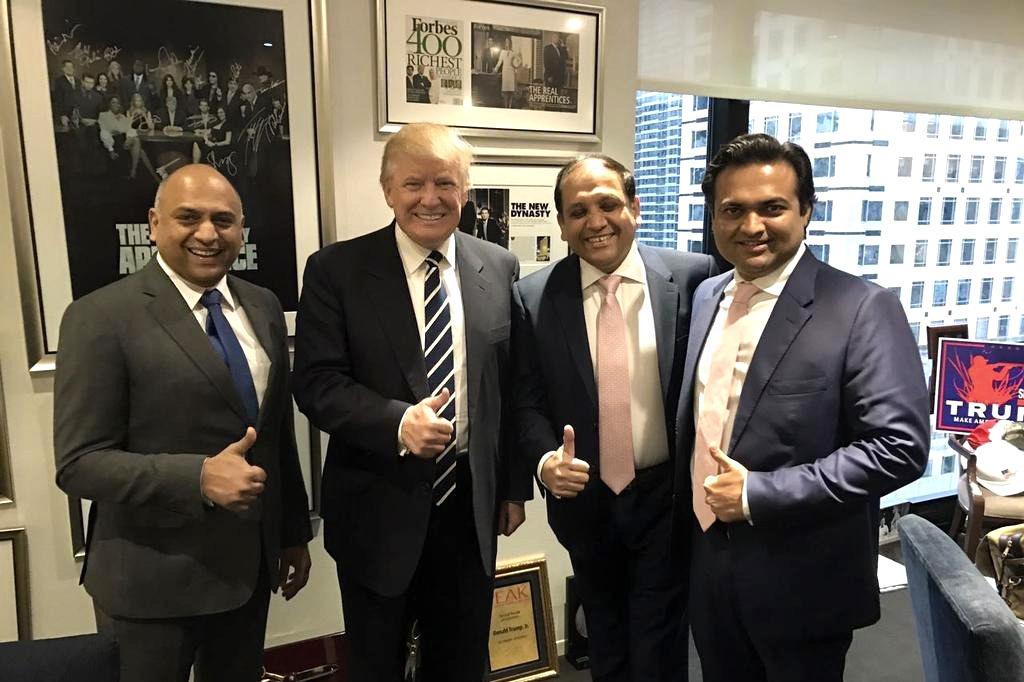
Among the thousands of special powers that Donald Trump will gain when he is sworn in as President on Jan. 20 is the authority to protect the government of Saudi Arabia from lawsuits brought by families of victims of the 9/11 terrorist attacks. That power, given to the President earlier this year by Congress, makes sense: the Commander in Chief has always had great latitude when it comes to foreign relations and national security. But in Trump’s case, it’s complicated.
In May, Trump revealed an investment in a possible hotel in Jidda, Saudi Arabia, where a billionaire prince is building a huge government-subsidized development with the help of the Saudi Binladin Group, the construction firm founded by the father of Osama bin Laden, who broke with his family when he became a terrorist. The nature and extent of Trump’s investment is unclear because his business empire is private and largely undisclosed. But it isn’t his first Saudi entanglement. His Trump World Tower on Manhattan’s east side housed the offices or residences of several members of the Saudi family and the kingdom’s U.N. delegation.
Which means members of the Saudi royal family could be in a position to open or close the spigot of dollars flowing legally, but unseen, from their bank accounts to Trump’s pockets if the 9/11 families finally make it to court. Not that Trump or the Saudis would ever countenance such behavior. But as former Secretary of State Hillary Clinton can attest, even the appearance of a possible conflict of interest can be crippling to a public servant.
Enter Don McGahn, a Washington lawyer tapped by Trump on Nov. 25 to be his White House counsel. Job No. 1 for McGahn: clean up the many conflicts that could consume the Trump presidency. Within a week of naming McGahn, Trump said he would talk about stepping away from his businesses at a press conference on Dec. 15.
It probably helps that McGahn and Trump go way back. Patrick “Paddy” McGahn, Don’s uncle, was a powerful lawyer in Atlantic City who represented Trump in his earliest days there. Paddy’s secretary reportedly acted as a pass-through when Trump bought a key parcel of land for his first casino from two mobsters. In 2013, Don told National Journal he was drawn to political law because of his family’s high profile in Atlantic City, where another uncle was a state lawmaker.
Without some kind of total divestment, Trump’s many potential conflicts at home and abroad will threaten his presidency. Philippine strongman Rodrigo Duterte tapped as the country’s envoy to the U.S. Trump’s business partner in a $150 million Manila project. Trump met on Nov. 15 with Indian business partners and allowed his children to sit in on presidential transition meetings with the leaders of countries where the family does business. At home, China holds part of a $950 million loan on a building in Manhattan of which Trump is a 30% owner, according to the New York Times. And Trump will likely have to give up his share in his new hotel on Pennsylvania Avenue, whose federal lease prevents even partial ownership by a government employee.
Trump has promised that on Dec. 15 he will “discuss the fact that I will be leaving my great business in total in order to fully focus on running the country.” Much hangs on just how “total” that departure is. McGahn’s challenge between now and then will be to convince Trump that he must, for his own sake, go beyond what the law requires. The President and Congress are exempt from laws criminalizing conflicts of interest by federal workers. The President is not exempt from bribery laws, but investigations of even low-level public officials require approval by the Attorney General, and convictions usually require taped evidence of a quid pro quo of official acts for cash. The Constitution’s emoluments clause bars the President from taking foreign gifts but has rarely been tried in court.
One solution, advocated by ethics lawyers in both parties, is to liquidate Trump’s holdings and put the assets in a trust over which he and his family have no control. Trump could even ask Congress to extend to him the public-service exemption that others, like former Treasury Secretary Hank Paulson, used to cash out of huge investments tax-free. Whether McGahn has the inclination or sway to make it happen could determine the success or failure of the Trump presidency.
More Must-Reads From TIME
- The 100 Most Influential People of 2024
- The Revolution of Yulia Navalnaya
- 6 Compliments That Land Every Time
- What's the Deal With the Bitcoin Halving?
- If You're Dating Right Now , You're Brave: Column
- The AI That Could Heal a Divided Internet
- Fallout Is a Brilliant Model for the Future of Video Game Adaptations
- Want Weekly Recs on What to Watch, Read, and More? Sign Up for Worth Your Time
Contact us at letters@time.com